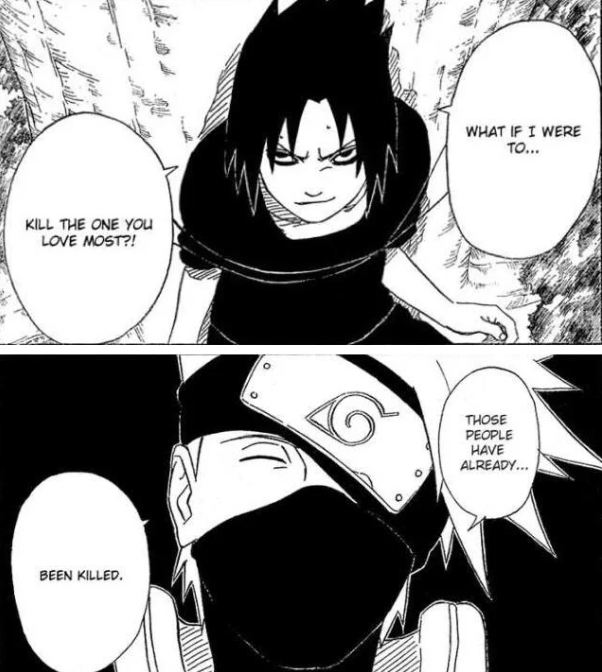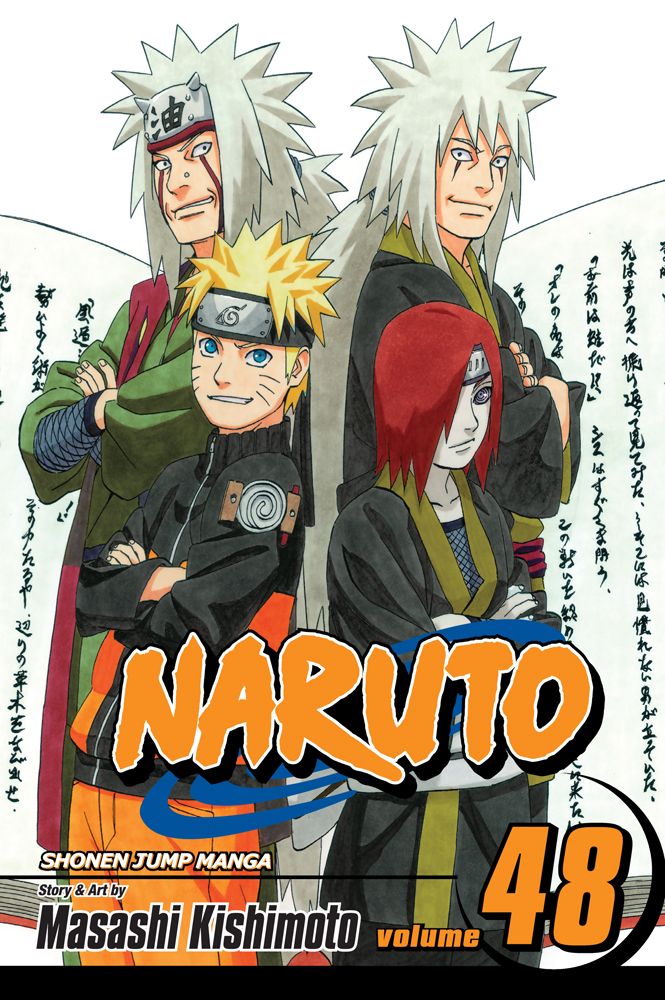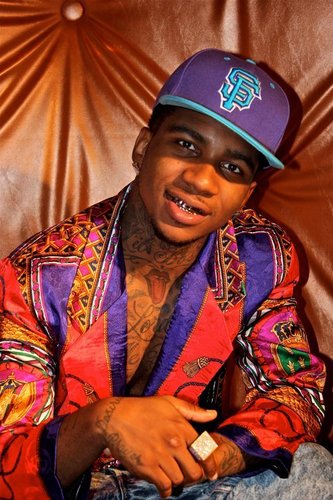By: Tommy “T-Rod” Rodriguez
I didn’t expect to love Naruto as much as I did.
In a day and age years away from its final publication, it feels weird to be so late to the party. There’s a few reasons I stayed away from the series: time, focus on other stories, and most importantly, the negativity that surrounds it. Don’t get me wrong, the Naruto fanbase is passionate and welcoming to others that aren’t hip to it…but the people who hate it really hate it, and unfortunately those opinions impacted my desire to check it out. I finally began reading it in 2022…365 days later, I have finally finished.
Does Naruto have incredible storytelling highs? Absolutely. Did creator Masashi Kishimoto fumble numerous bags while publishing the story? Also yes. Naruto is a story that is fascinating in its streakiness. There were times where I couldn’t get enough of what I read, and there were times where I became so frustrated that I’d put the manga down and stare at the ceiling to detox.
What remained constant for me was Kishimoto’s incredible passion for this world, his characters. And honestly, sometimes that’s more than enough to make a story memorable. Let’s talk about its characters.
The Characters of Naruto: Equal Parts Fantastic and Underutilized
One of the things that ironically prevented me from reading Naruto was Naruto himself. For years I heard from critics that he was annoying, gifted every win he had; after reading through this story I think they misunderstood the character. Naruto is by far the best written figure, as well as one of the most dynamic protagonists I’ve seen in a long form series. Kishimoto is incredible at showing how this goofy kid slowly becomes a compassionate leader over time. What makes his growth most satisfying is that he actually learns directly from the story’s core theme: the new generation rising to surpass and improve the old. Throughout the story, his opponents are those that represent ways of the past: war, violence pain. His mentors represent that same trauma and instill their life experiences in him: Kakashi, Jiraiya to name a few. The relationship between mentors and students is special (to this day what I’ve learned from my family and writing peers has helped me grow as a person and blogger), and I think that Naruto’s growth captures that. What’s just as impressive is how his creativity and pure compassion helps others around him and create a better world. It’s rare that a story introduces a character that manages to shake up the foundations of its world in such a believable way. He represents ingenuity and selflessness, something almost antithetical to the world he seeks to rise up in, and that to me is very powerful.
Beyond its main character, Naruto’s supporting cast is one of the series’s most iconic aspects. As far as characters go, there are too many highlights: Shikamaru, Gaara, Kakashi, Jiraiya, Killer Bee…many of the most interesting side characters work best when Kishimoto gives them an integral role in the story or just lets them breathe. Hell, the best parts of the story are usually just conversations, whether it be Jiraiya teaching Naruto how to properly use chakra, Pain discussing his ideology and the cycle of war, or Kakashi calmly admitting that he has lost all of his loved ones in the lines of duty. Stuff like this speaks to the detail and effort Kishimoto takes to build up and develop his supporting cast, making them feel like real people. What makes them even greater is that often times the quieter moments are then followed through with an exciting confrontation or fantastic revelation: when the side cast is deeply ingrained with the goings on of the plot, there can be some fantastic highs. Gaara holding a dark mirror to Naruto’s own loneliness or Shikamaru finally taking full responsibility after the death of his mentor: moments like these become iconic because the characters were built up properly, not just randomly thrust in front of the page to accomplish a random feat.

And yet for each of these highs, there’s either a low or a missed opportunity.
While it’s well-documented that much of Naruto’s side-cast falls to the wayside, it’s an issue that is very slow to appear. The Shippuden portion of the series gradually reduces our previously established cast’s agency to make room for Akatsuki and Sasuke shenanigans; it’s a natural by-product of the story’s shift in focus. By the end of the story, it feels as though Kishimoto had a “wait a damn second” moment and decided to artificially give importance to characters who hadn’t done much since their introduction. Characters like Choji, Rock Lee, Neji, Temari feel like they’re there out of obligation, not as key figures in the story like they were before. Top this with a lot of moments that feel forced or almost disrespectful to their initial feats and a lot of it just feels…empty. Especially so for Rock Lee, a loveable goof with some fantastic early moments early fades into obscurity as his Master, Might Guy takes the stage. This is a microcosm of one of my problems with the cast’s use in the story: they’re antithetical to the themes of the story. The old guard, like Tsunade and Guy, clearly outshine and diminish their proteges’ impact, making the “new generation” argument weaker when they’re shoved to the sideline.
Speaking briefly on the writing of the series’ women, I genuinely agree that the women in this story are often very poorly utilized and even written. The only standouts I can think of are Tsunade and Konan, who reflect Kishimoto’s highs when it comes to fleshing out and giving shine to his supporting cast. I think Hinata is adorable and is a good stand-in for the “average” shinobi, but that’s pretty much it. Sakura is easily one of the worst written characters in the story, actively making a poor decision that hurts her friend’s feelings in the end game and generally not doing much outside of standing by the sidelines. Even her ending, having a child with someone who was very much abusive and negligent to her, is a bit problematic for me.
And that leads me to where I want to end this piece: Sasuke. To me, he represents the sheer highs and disappointing shortcomings Kishimoto’s story embraces. At his absolute best, Sasuke is incredible, displaying almost a negative version of the same path Naruto takes: he learns from mentors who have all been battered by violence, but instead of changing course, embraces it for the sake of revenge. His trauma has him in a chokehold for the majority of the story, and to see him slowly unravel it is deeply satisfying. This development isn’t exactly smooth, however. At times, Sasuke’s writing feels very directionless, and there are times where instead of taking a more nuanced angle at his clear internal conflict, Kishimoto spams the “edgy” button until the controller breaks. His descent to more evil acts feels extremely forced, and this feels like it was to build up his return as something grander than what it was, or to clearly hammer down on the themes of corrupt ninja politics. His ceiling can be extremely high or extremely low depending on who you ask, but his ultimate ending still feels worthwhile. It’s only the road to it that I’m iffy on from time to time.
In a way, that’s how it feels getting to know these characters. By the time you finish reading Naruto, it very much feels like you appreciate these characters’ existence, their triumphs and struggles. In the same way though, building that relationship was not easy. There’s a lot of bumps in the road that make it very hard to love the whole journey, but once you get to that destination, you can’t say you regretted it.


